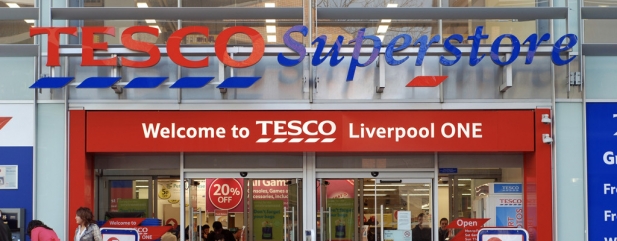Archived article
Please note that tax, investment, pension and ISA rules can change and the information and any views contained in this article may now be inaccurate.
Will absolute return funds become fashionable again?

The return of market volatility and the end of loose monetary policy in parts of the world has led several market commentators to suggest that absolute return funds could become more interesting if markets start to pull back.
Absolute return funds are designed to provide a positive return over rolling 12-month periods in all market conditions, although this is never guaranteed.
Within the open-ended funds (OEICs/unit trusts) universe, examples of absolute return funds include JPM Global Macro Opportunities (GB00B4WKYF80), Schroder UK Dynamic Absolute Return (GB00B3N53472), 7IM Real Return (GB00B75MS619), Threadneedle UK Absolute Alpha (GB00B8BX5538) and Jupiter Absolute Return (GB00B6Q84T67).
Also in this peer group is BlackRock UK Absolute Alpha (GB00B5ZNQ990) which has achieved annualised returns of 2.26%, 4.47% and 1.81% on a 10, five and three-year basis respectively, according to Morningstar.
Although those levels of returns are significantly less than the broader market – and other absolute return funds have produced similarly low returns – they could still appeal to a more cautious investor who wants to avoid a large capital loss in the future.
RISK VERSUS REWARD
BlackRock UK Absolute Alpha is co-managed by Nick Osborne and Nigel Ridge who tap into significant in-house research and support at BlackRock.
‘We’re trying to deliver positive absolute returns at substantially reduced levels of risk,’ explains Osborne. ‘It takes out the challenge that many of our clients feel around market timing, which evidence suggests is hard.’
Osborne says the absolute return universe straddles many different asset classes and in some instances different geographies. ‘Although the funds all call themselves absolute return, many have different return ambitions and risk tolerance.’
He says any good fund should take advantage of their differentiated expertise. ‘Ours is a great heritage and a wonderful franchise in investing in UK equities,’ enthuses the BlackRock fund manager.
He primarily puts money to work in the FTSE 100 and top end of the FTSE 250. Top 10 ‘long’ positions (as at 30 April) included grocery giant Tesco (TSCO), cruise operator Carnival (CCL), media business RELX (REL) and banking behemoth HSBC (HSBA).
Yet as Osborne explains: ‘Not only can we profit from shares that we think are going to rise in value, but we can also generate returns through having positions in shares which we think are going to fall in value (known as ‘shorting’). Our short ideas also help to hedge risk and reduce overall portfolio volatility.’
Osborne won’t divulge current short positions and points out that shorting is often misrepresented in the media. ‘It is portrayed as speculation. Actually, what shorting always did historically, and how we use it as a tool, is to take out risk,’ he says.
In falling markets, the fund manager says he is able to exercise his ability to introduce shorts to support the fund’s asset value, to take out volatility and to therefore reduce risk.
‘And whereas most fund returns are determined by the beta component, in our fund, returns are predominantly determined by alpha. Therefore it matters much less what the market does, because our shorts reduce our net market exposure.’
Beta is a measure of a stock’s volatility compared to the overall market. Alpha is how much extra return an investor or fund manager has achieved versus a benchmark index.
USING PAIR TRADES
The BlackRock fund also uses pair trades, which you can think of as relative value trades.
‘Pair trading is an opportunity where we see two companies that have similar operating characteristics, are almost always exposed to the same sector, but we think will have different return profiles.
‘The key output is that the fund’s market exposure is much more modest and as a consequence of that lower market exposure, volatility is considerably lower as we can use our shorts to hedge out risks and to protect the fund in times of market stress.’
Osborne believes the current benign global growth outlook will support company earnings, though he cautions the withdrawal of stimulus and consequences for rates will be depressive for equity markets, with valuations likely to fall from elevated levels over the next few years.
Accordingly, he says: ‘We do like attractively valued cyclical shares that are likely to benefit from that growth backdrop and we can play that across a range of sectors – the UK market is incredibly international with around only 30% of the revenue exposure of the UK stock market generated domestically.
‘We’ve sought companies with US exposure because the trading backdrop is positive but also there’s been a benefit from fiscal changes which will further accelerate earnings growth.’
Important information:
These articles are provided by Shares magazine which is published by AJ Bell Media, a part of AJ Bell. Shares is not written by AJ Bell.
Shares is provided for your general information and use and is not a personal recommendation to invest. It is not intended to be relied upon by you in making or not making any investment decisions. The investments referred to in these articles will not be suitable for all investors. If in doubt please seek appropriate independent financial advice.
Investors acting on the information in these articles do so at their own risk and AJ Bell Media and its staff do not accept liability for losses suffered by investors as a result of their investment decisions.

 magazine
magazine









